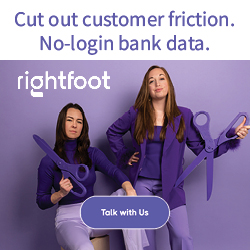FCC Seeks to Close the “Lead Generator Loophole” on Texts and Calls
 As part of the FCC’s initiative to “combat illegal text messages” the regulator intends to require that texters and callers obtain a consumer’s prior express written consent from a single seller at a time. Specifically, the FCC is acknowledging that lead generation sites or comparison shopping sites attempt to abide by the current rules by obtaining one layer of consent that they then creatively apply as counting toward all the numerous parties they have relationships with. It’s known as the “Lead Generator Loophole.”
As part of the FCC’s initiative to “combat illegal text messages” the regulator intends to require that texters and callers obtain a consumer’s prior express written consent from a single seller at a time. Specifically, the FCC is acknowledging that lead generation sites or comparison shopping sites attempt to abide by the current rules by obtaining one layer of consent that they then creatively apply as counting toward all the numerous parties they have relationships with. It’s known as the “Lead Generator Loophole.”
“Lead-generated communications are a large percentage of unwanted calls and texts and often rely on flimsy claims of consent to bombard consumers with unwanted robocalls and robotexts,” the FCC said in its proposal. Their solution? One-to-one consent.
First, the one-to-one consent must come after a clear and conspicuous disclosure to the consenting consumer that they will get robotexts and/or robocalls from the seller. “Clear and conspicuous” means notice that would be apparent to a reasonable consumer. In addition, if compliance with the federal Electronic Signatures in Global and National Commerce Act (the E-Sign Act) is required for the consumer’s signature, then all the elements of ESign must be present.”
Second, we adopt our proposal that robotexts and robocalls that result from consumer consent obtained on comparison shopping websites must be logically and topically related to that website. Thus, for example, a consumer giving consent on a car loan comparison shopping website does not consent to get robotexts or robocalls about loan consolidation.
Fortunately, the FCC spells out an example of what might be acceptable as one-to-one consent for a lead generator.
For instance, the website may offer a consumer a check box list that allows the consumer to specifically choose each individual seller that they wish to hear from. Alternatively, the comparison shopping website may offer the consumer a clickthrough link to a specific business so that the business itself may gather express written consent from the consumer directly. Our rule does not prohibit comparison shopping websites from obtaining leads through valid consent and provides multiple opportunities for responsible comparison shopping websites to obtain leads for potential callers.”
According to the National Law Review, “It has not been adopted yet but it looks like it will be in December when voted upon. It looks like the rule will become effective in or around August of 2024.”
Last modified: November 28, 2023






























